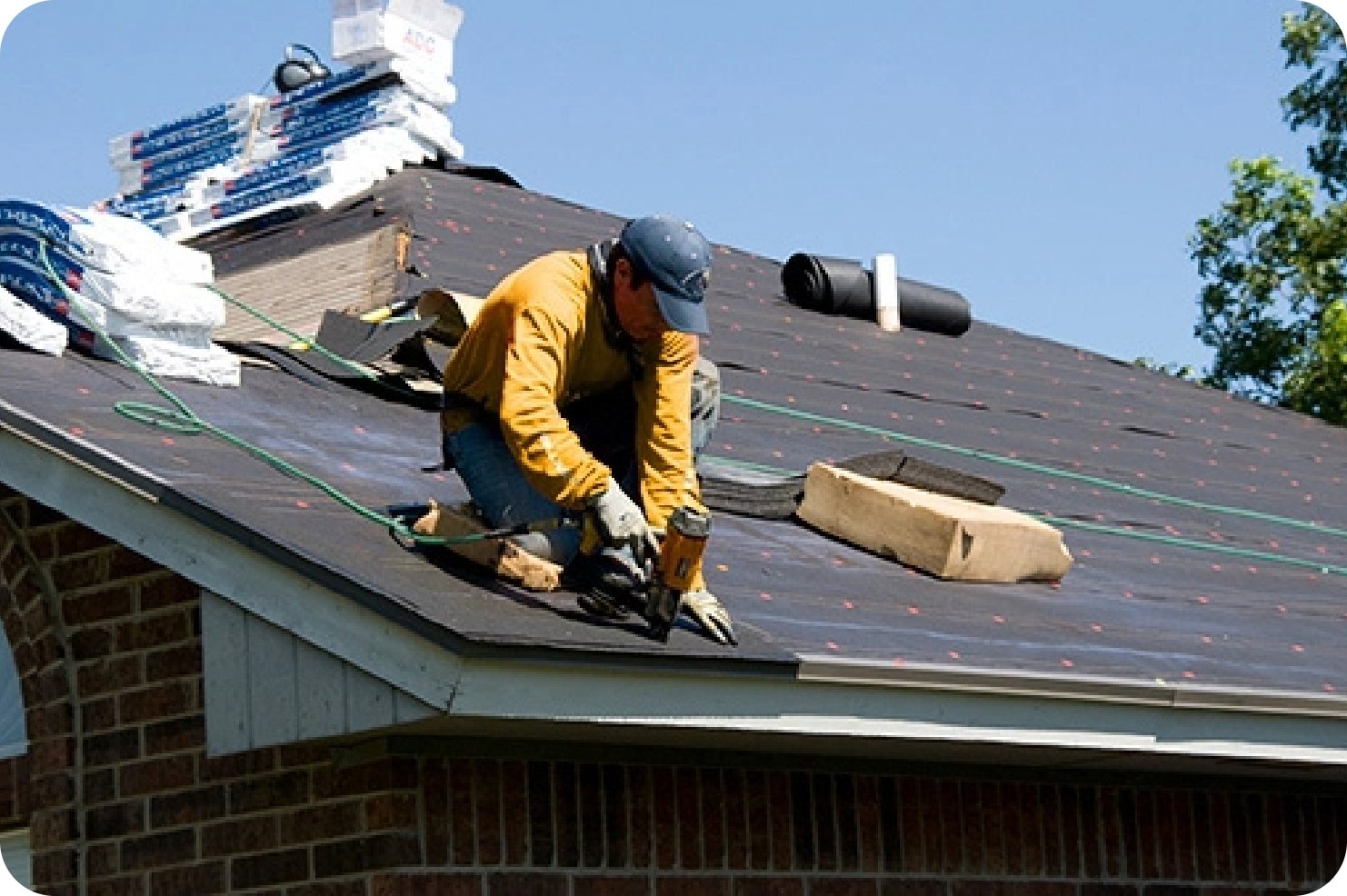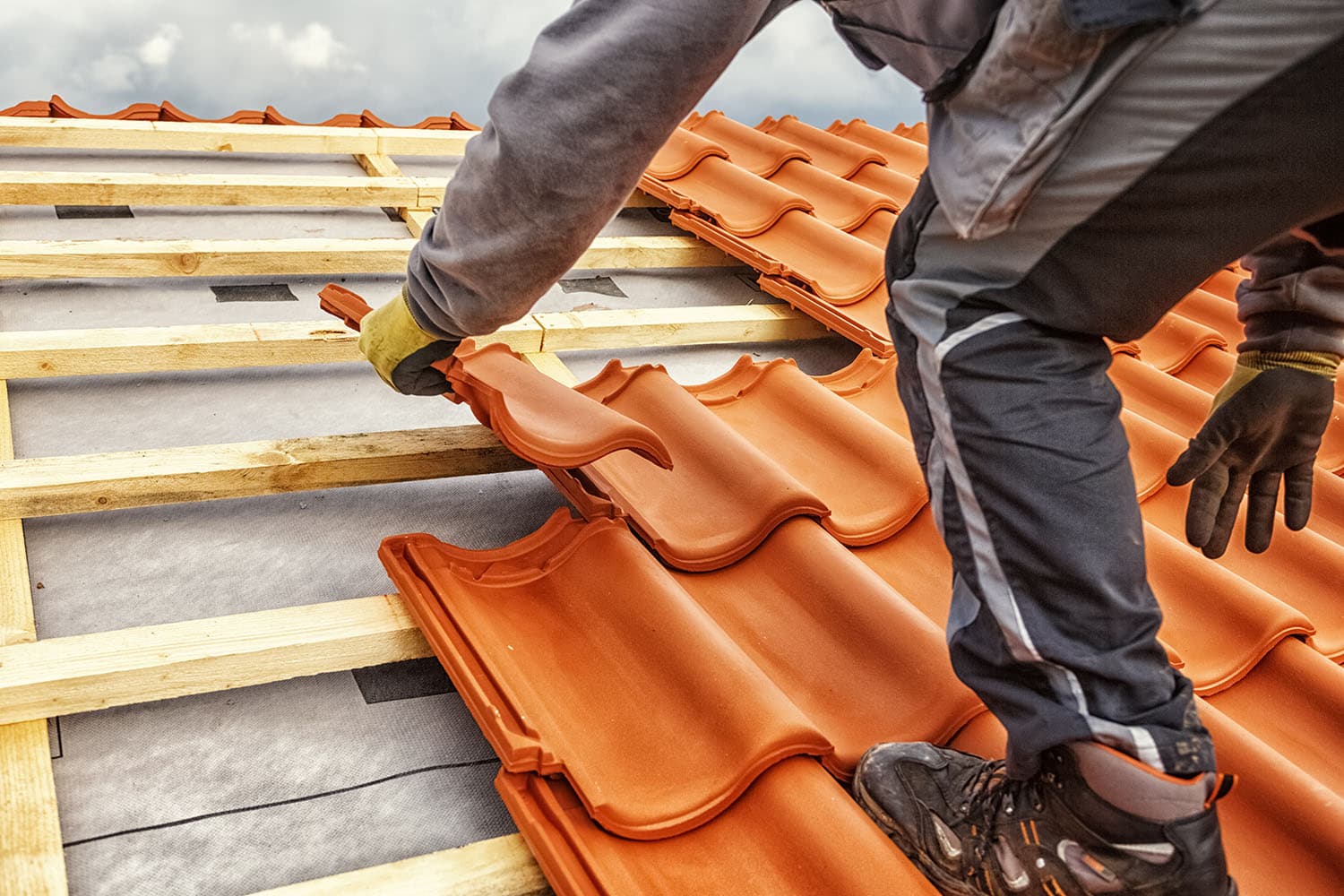Exactly How to Review Different Roofing Alternatives for Your Building Requirements
Examining roofing options for your structure requires a thorough approach that considers numerous elements such as the meant usage of the framework, neighborhood environment conditions, and product features - Toledo Roofer. It is necessary to consider the benefits and drawbacks of various roof kinds, from asphalt shingles to steel and clay floor tiles, while additionally factoring in preliminary prices and long-term upkeep.
Analyzing Your Structure's Demands
To successfully examine roofing options, start by completely examining your building's demands. Beginning by thinking about the structure's intended use, as various structures might necessitate varying roof requirements. As an example, household roofs frequently focus on aesthetics and insulation, while industrial buildings may concentrate on sturdiness and load-bearing ability.
Next, evaluate the neighborhood environment conditions that will influence roof efficiency. Factors such as temperature fluctuations, precipitation degrees, and wind patterns can influence product option and layout. A roofing system that succeeds in a pleasant climate may not perform as well in locations prone to hefty snowfall or severe warmth.
Furthermore, evaluate the architectural stability of your structure. Make sure that the existing structure can sustain the selected roofing materials, particularly if considering larger options. It is also vital to review any type of local building ordinance or guidelines that might determine certain requirements for roof.

Contrasting Roofing Products
As soon as a detailed evaluation of your structure's demands has actually been finished, the following action includes comparing various roofing materials. Each product offers distinct benefits and downsides, making it important to straighten your choice with your particular demands and scenarios.
Asphalt roof shingles are widely recognized for their affordability and simplicity of installment, making them a preferred choice for domestic buildings. On the other hand, steel roof, recognized for its resilience and longevity, can withstand harsh climate condition however might feature a greater preliminary investment.
Clay and concrete ceramic tiles supply excellent thermal insulation and aesthetic appeal, specifically for Mediterranean-style architecture, yet they require a more durable architectural assistance as a result of their weight. Timber trembles offer an all-natural look and good insulation residential or commercial properties yet might require a lot more upkeep and are prone to fire hazards.
Assessing Cost and Budget Plan
Evaluating your roof choices necessitates a careful evaluation of cost and spending plan considerations. The total spending plan for a roof job consists of a number of factors, including product costs, labor costs, upkeep, and potential long-term financial savings. It is necessary to establish a clear budget before discovering particular roofing products, as this will guide the decision-making procedure and aid you avoid overspending.
Begin by getting quotes from numerous service providers to recognize labor prices in your region. Make certain that these estimates consist of all required services, such as elimination of the old roofing, installation, and any kind of added attributes, like insulation or ventilation enhancements - Toledo Roofer. Next off, assess the cost of various roofing materials, thinking about both initial installment expenses and anticipated lifespan

Comprehending Energy Efficiency
Energy effectiveness plays a vital duty in the choice of roof materials and systems, dramatically impacting both power usage and general comfort within a structure. A well-chosen roofing can enhance thermal efficiency, decreasing the requirement for heating and cooling systems, which consequently reduces power costs and lessens environmental impact.
When assessing roof alternatives, think about products that mirror find more info instead of absorb warm. Light-colored or reflective roof covering products can significantly reduce roofing system surface temperature levels, bring about reduced energy usage throughout warm months. In addition, correct insulation and air flow are necessary to enhance the power performance of the whole roof system. Insulation avoids heat transfer, while ventilation mitigates warm accumulation in the attic area.
Another crucial element is the roofing system's long life and upkeep demands. Resilient materials that require much less frequent substitute add to lasting power savings. The energy effectiveness of a roof covering system can also be evaluated through its compliance with established sustainability ratings such as Power STAR or LEED.
Considering Visual Allure
A roof covering's visual appeal significantly influences the overall look of a building, matching its building design and boosting visual charm. Sylvania Roofing Contractor. When examining roof covering choices, it is necessary to consider just how the picked product, shade, and design will certainly harmonize with the existing framework and area. A properly designed roofing system can boost even the simplest of structures, transforming them into aesthetic centerpieces
Various roof covering materials offer various aesthetic qualities. Conventional shingles might evoke a traditional beauty, while metal roofing can give a modern, streamlined look. Additionally, the shade of the roofing product plays an important role; lighter shades can make a structure show up even have a peek at this site more sizable, while darker tones might develop a cozier atmosphere.
Additionally, architectural elements, such as dormers and eaves, can improve the roof's visual impact. It is a good idea to seek advice from specialist designers or designers to make sure the selected roof covering alternative aligns with the overall style intent. Inevitably, a roof must not only give useful advantages but also add favorably to the building's visual, showing the owner's preference and the character of the surrounding environment.
Final thought
